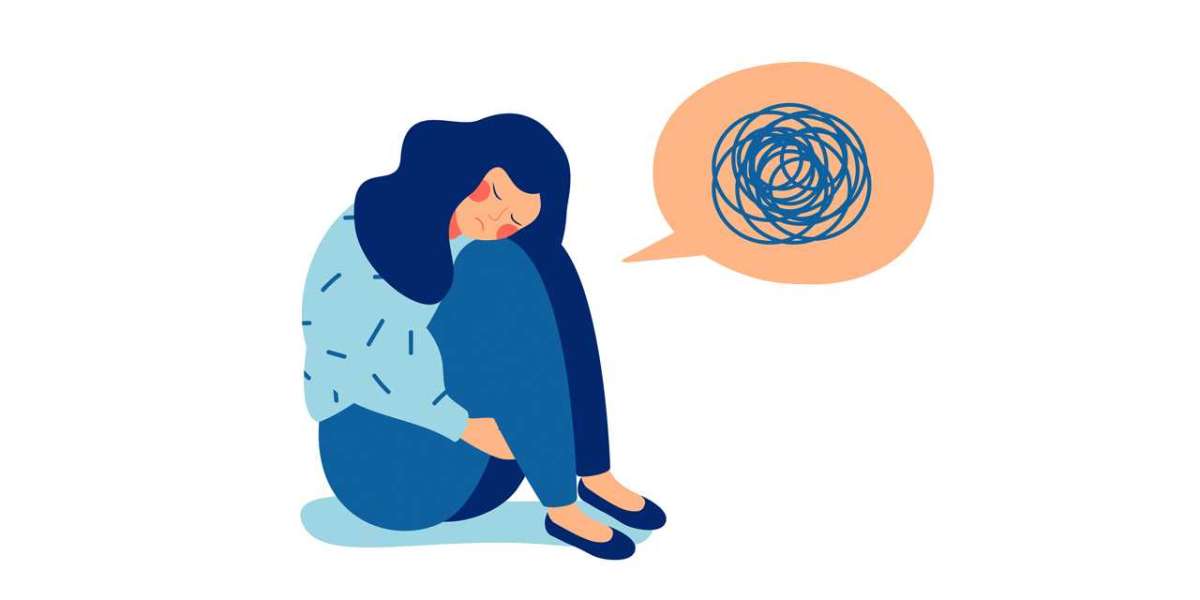If you suffer from an anxiety disorder, the best thing you can do is to seek medical attention. It is much easier to treat anxiety at an early stage than it is later. If you suffer from anxiety, the first step you need to take is to learn about the causes, symptoms, and treatment options. Also, keep an eye out for the current health topic, COVID-19.
Symptoms
When a person has symptoms of anxiety, it can affect their life and ability to function. It is one of the most common mental health disorders, and up to 1 in 20 people suffer from some form of it. It can be triggered by traumatic experiences, genetics, long-term health conditions, or substance abuse. Anxiety can also be caused by a person's current circumstances, such as problems with money, housing, or employment. Other triggers can include loneliness or difficult family relationships.
People who suffer from anxiety disorder need to understand that this condition is a long-term problem that can cause significant disruptions to their lives. They should seek medical help as soon as possible because the disorder gets worse without treatment. It is easier to treat anxiety at an early stage than it is later.
Causes
Anxiety is a common psychiatric condition that affects over 20 million Americans every year. Many causes can be physical. For example, exposure to organophosphate insecticides can increase the risk of anxiety. Some drugs and herbal supplements are also known to cause anxiety. Overconsumption of caffeine, alcohol, and other stimulants can also trigger anxiety.
Anxiety may be the first sign of a more serious underlying health problem. Anxiety is often caused by traumatic experiences. These events cause intense worry and can linger long after the event has passed. Abuse is another common cause of anxiety, and children who experience abuse are particularly susceptible. Other factors that can lead to excessive worry and panic are having a chronic illness or having a sick family member.
Children can experience anxiety due to a fear of separation. It is often difficult for them to say goodbye to their parents and family. Adults, on the other hand, can have anxiety based on their work, social interactions, or health concerns. Older adults often experience anxiety about illness or the possibility of falling. They may also experience anxiety related to social standing and loss.
Treatments
Treatments for anxiety can vary widely and often involve a combination of psychotherapy and medication. Those with milder cases may be able to change their lifestyle and avoid medication. For more severe cases, however, medical treatment is recommended. Among the most common medical treatments for anxiety are antidepressants and sedatives. Psychotherapy and cognitive behavioral therapy are also options.
Psychotherapy, also known as talk therapy, focuses on understanding and changing patterns of anxiety. It usually involves regular sessions with a therapist who can help identify the underlying causes and teach the patient healthier coping skills. Cognitive-behavioral therapy is a popular form of psychotherapy for anxiety, as it aims to teach patients how to identify and manage anxiety triggers. It also includes exposure therapy, which gradually exposes sufferers to situations that used to make them anxious.
Diagnosis
A physician can diagnose anxiety disorders by looking at the symptoms and conducting a physical exam. In addition, he or she may recommend a blood test to rule out other disorders or diseases. However, there are many things that can interfere with a correct diagnosis, including certain medications. For example, levodopa, which is used to treat Parkinson's disease, can trigger anxiety symptoms. Cyclosporine, an immunosuppressant, is another medication that can cause anxiety. Other diseases, including schizophrenia, may also be associated with anxiety.
Anxiety is a symptom of an underlying disorder that causes a person to experience overwhelming feelings and avoid social situations. While some people find speaking before a crowd exhilarating, others may dread it. It is important to note that anxiety tends to run in families. You may have inherited it from your parents, or you may have picked up the trait from living around anxious people. Regardless of your family history, your doctor may be able to differentiate anxiety from other conditions.
Stress management
Managing stress can be a complex issue. Stress affects millions of people in the US daily. It can be caused by work, family problems, health issues, financial obligations, or other factors. Genetics, coping styles, and personality types can also determine how vulnerable a person is to stress. For example, people who are parents, social workers, and other health professionals tend to experience higher stress levels than other people.
For those who have a difficult time managing stress, it may help to learn new skills. Practicing different coping methods and taking breaks from stressful situations can help people manage their anxiety and stay relaxed. These techniques may include listening to music, reading, drawing, or writing. Developing a positive support network can also help.



